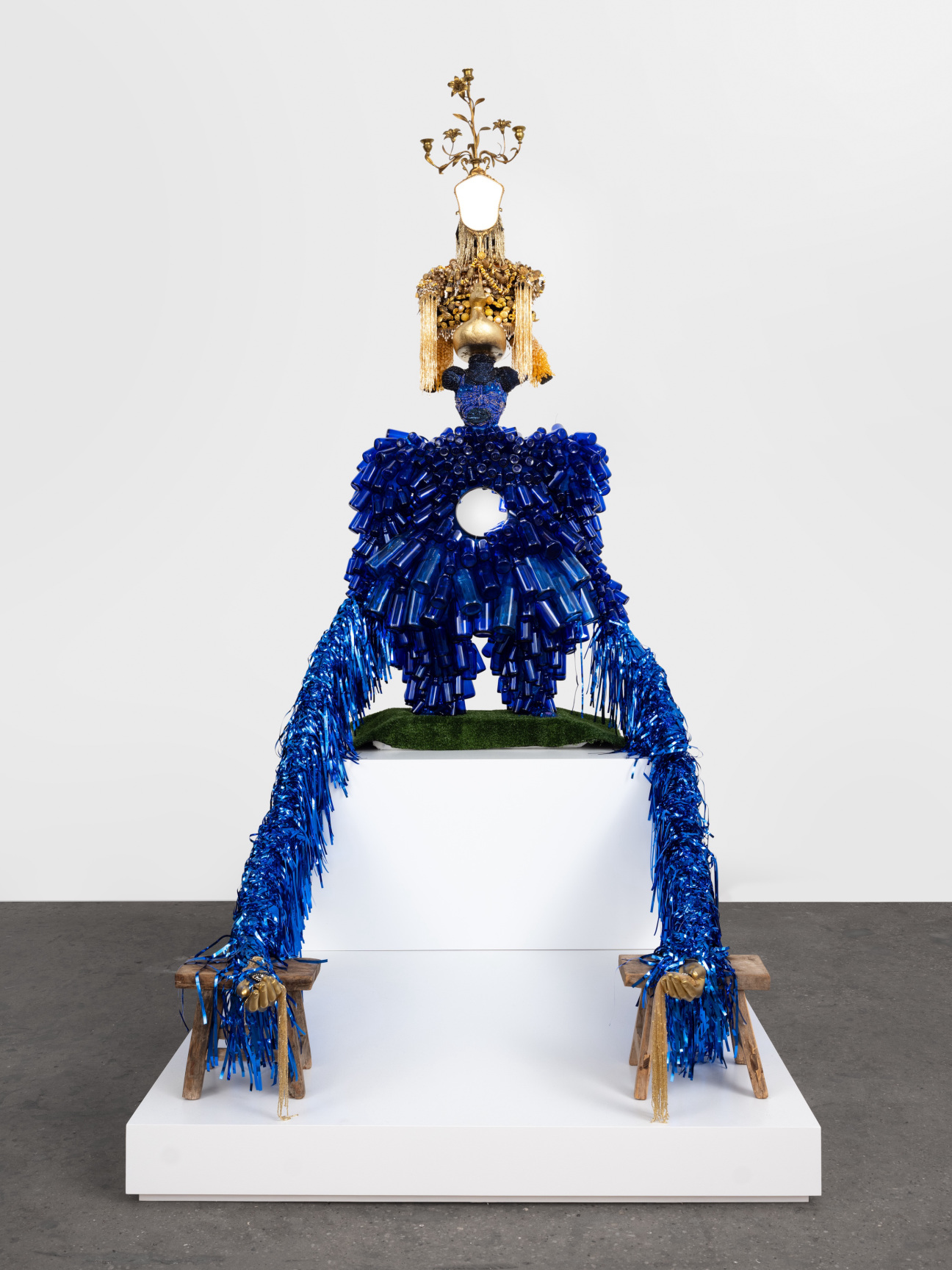
From their respective studios in Hudson, New York and the Appalachian Mountains of North Carolina, Tschabalala Self and vanessa german work across media, including sculpture, to explore the material and ideological layers of their lived experiences. There’s a reverence for the people they love permeating their practices—and a reverence for their materials and the power of making.
Here, Self and german, who are both featured in Phaidon’s new book Great Women Sculptors, connect for the first time and find the sort of earnest connection that inspires—and supports—their lives as artists.
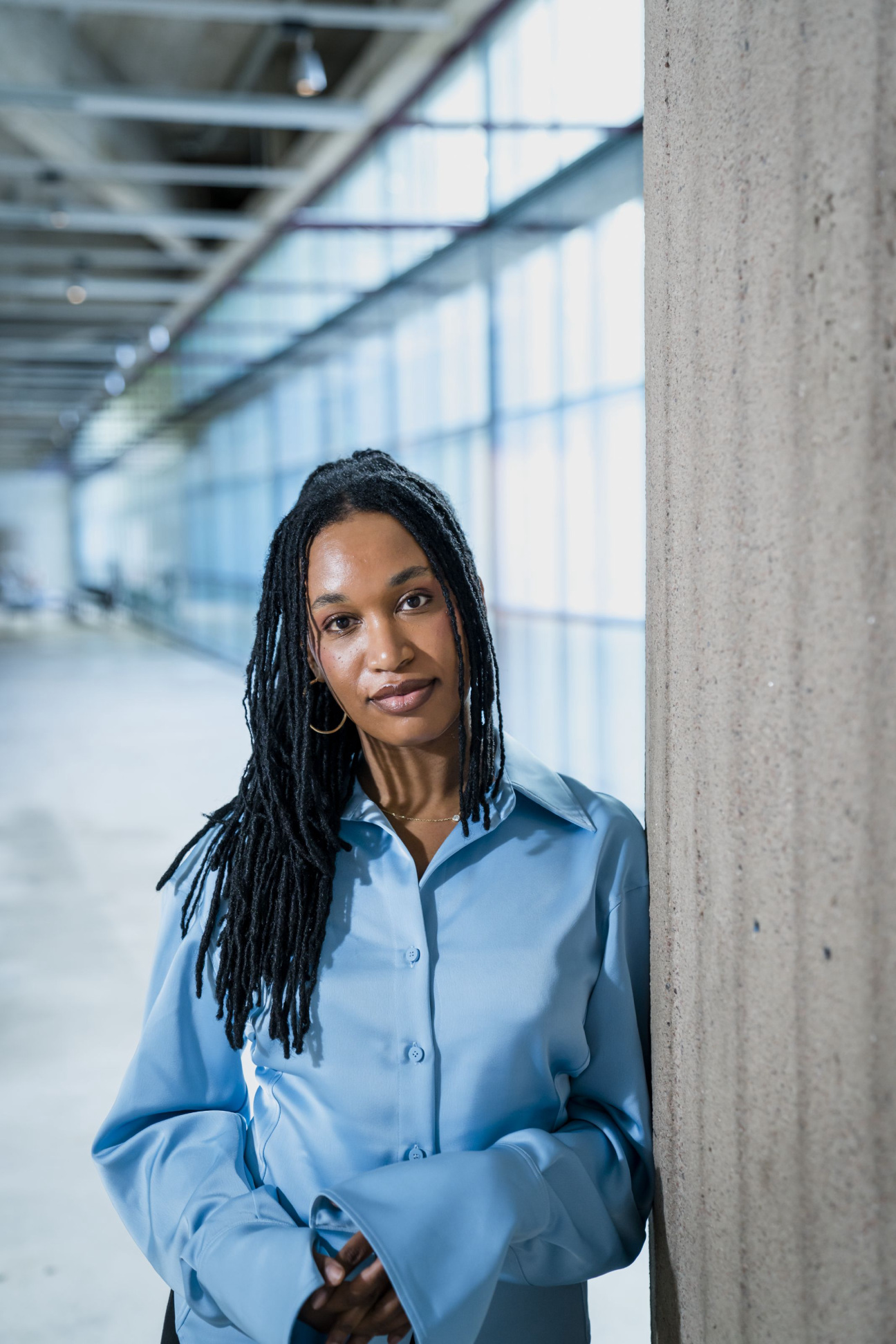
vanessa german: Where are you?
Tschabalala Self: I’m in the Hudson Valley, in upstate New York. That’s where I live. Do you live in the city?
german: I live in the Blue Ridge Mountains in Appalachia, North Carolina.
Self: Is your family from that area?
german: No. When somebody asks me where my family is from, I definitely have an experience of feeling splintered because I’m a descendant of enslaved Africans. My family knows the plantations that my ancestors worked on and I know who bought my great-grandmother. Where we are from doesn’t feel like any place that’s real. My grandmother was in Virginia, my other grandmother was in Louisiana and Alabama, but I was raised in Los Angeles. I feel like an earthling more than I am from any particular geographic place. Where are you from?
Self: Well, I’m Black American, too, so my family, we’re descendants of American slavery, my family’s from Mississippi and Louisiana.
german: Are your people Creole?
Self: I don’t think they would identify as Creole for political reasons, but I have Native and other ancestry from Louisiana and Mississippi.
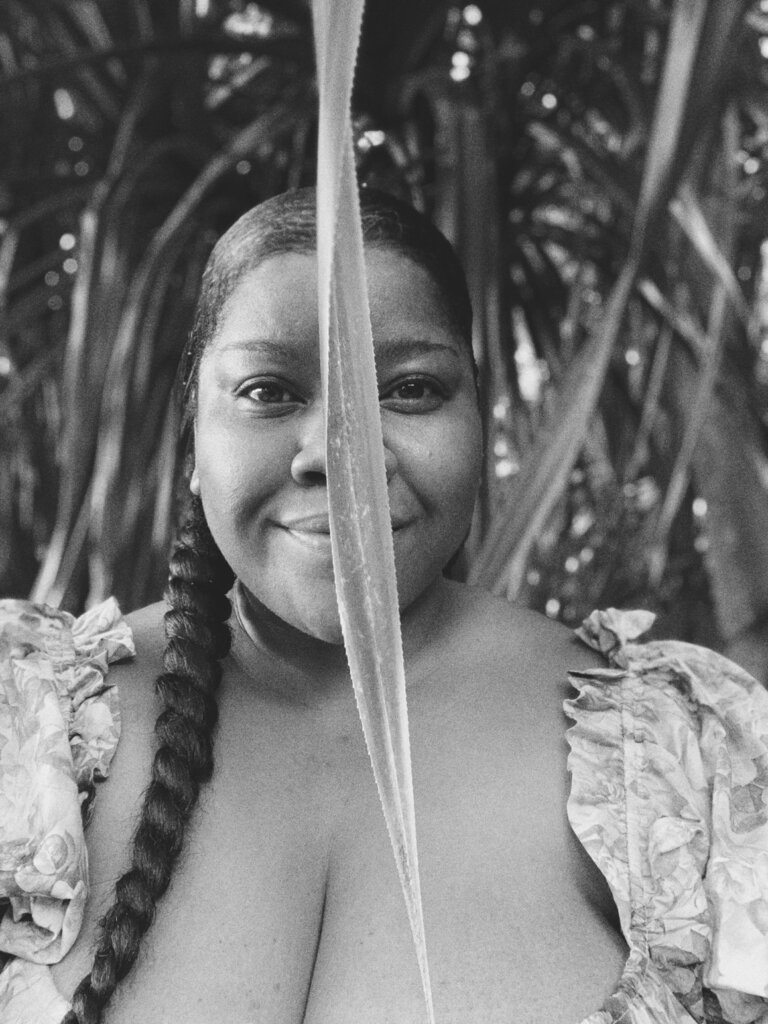
german: That sounds so much like my family. When you say “for political reasons,” what does that mean?
Self: We just fully identify as Black American people, and all of what that entails. It’s a political statement. It’s nice to know that we share these ancestral similarities. I can see it in your work. There is a lot of American iconography I associate visually and emotionally with the South, a shared imagination of what that place feels like, regardless of whether or not someone was actually raised or spent a lot of time there.
german: Since I was a little child in Los Angeles, which is as far away from the Deep South as you can get, I’ve felt magnetically drawn to images of little Black children there. I think I was looking for my own face, or a face I recognized. There’s a way that the work I’m making is prying after the origin of that sensorial, soulful experience. The way that I’ve been able to touch it has been through the domestic history of that time, whether it’s touching old irons, dishwashing boxes, bags of sugar. They engage my whole humanity and consciousness. What did you love looking at when you were little?
Self: I used to love looking at magazines. I was always really obsessed with popular culture. I grew up in Harlem, so I have a really vivid memory of newsstands. The ones on 125th in particular.
german: I remember that. I used to look at newsstands and count the faces that weren’t white.
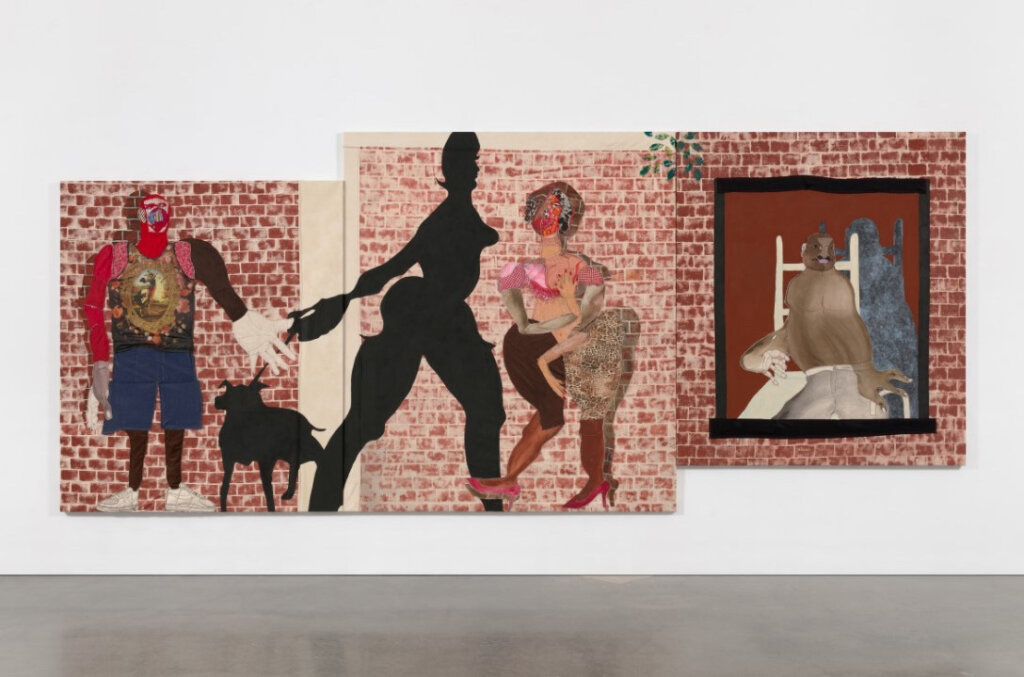
Self: Me too. One thing I always found a bit jarring about the newsstands was the politics of gender, race, and beauty. On 125th [street], the King magazines would be splayed all over the outside of the newsstand, whereas if you wanted a Playboy magazine, those were covered, behind the owner’s back. You had to pay to see a nude white woman, but a nude Black woman could be seen for free. I still try to place my feelings about this. In one way, it was nice to see an elevated, glamorized image of Black beauty, but for it to be made so vulnerable was also concerning.
german: Thinking about the images that captured me as a young person, when I looked at a photo of a Black woman in the Jim Crow South, I feel like I always recognized that the people I was looking at had a world inside of them that the world did not know existed, or could not comprehend the power and complexity of. I felt like I was looking at magical people, and then at a world that could not contend with magical people. Did you make art as a child? Did you paint? Did you create?
Self: I used to paint, that was just the thing I did as my hobby. I painted, and occasionally made collages.
german: My mother was the fiber artist Sandra German. That’s one of the reasons, when I first saw your work, that I loved it so deeply, because of the layers of textile and being able to see seams. When I was a kid I knew that it was a very special thing that human beings could bring a thing that had not been seen before, through them, into the world. When I first experienced your work it was deeply touching for me, I felt like I understood something about the language of material and soul.
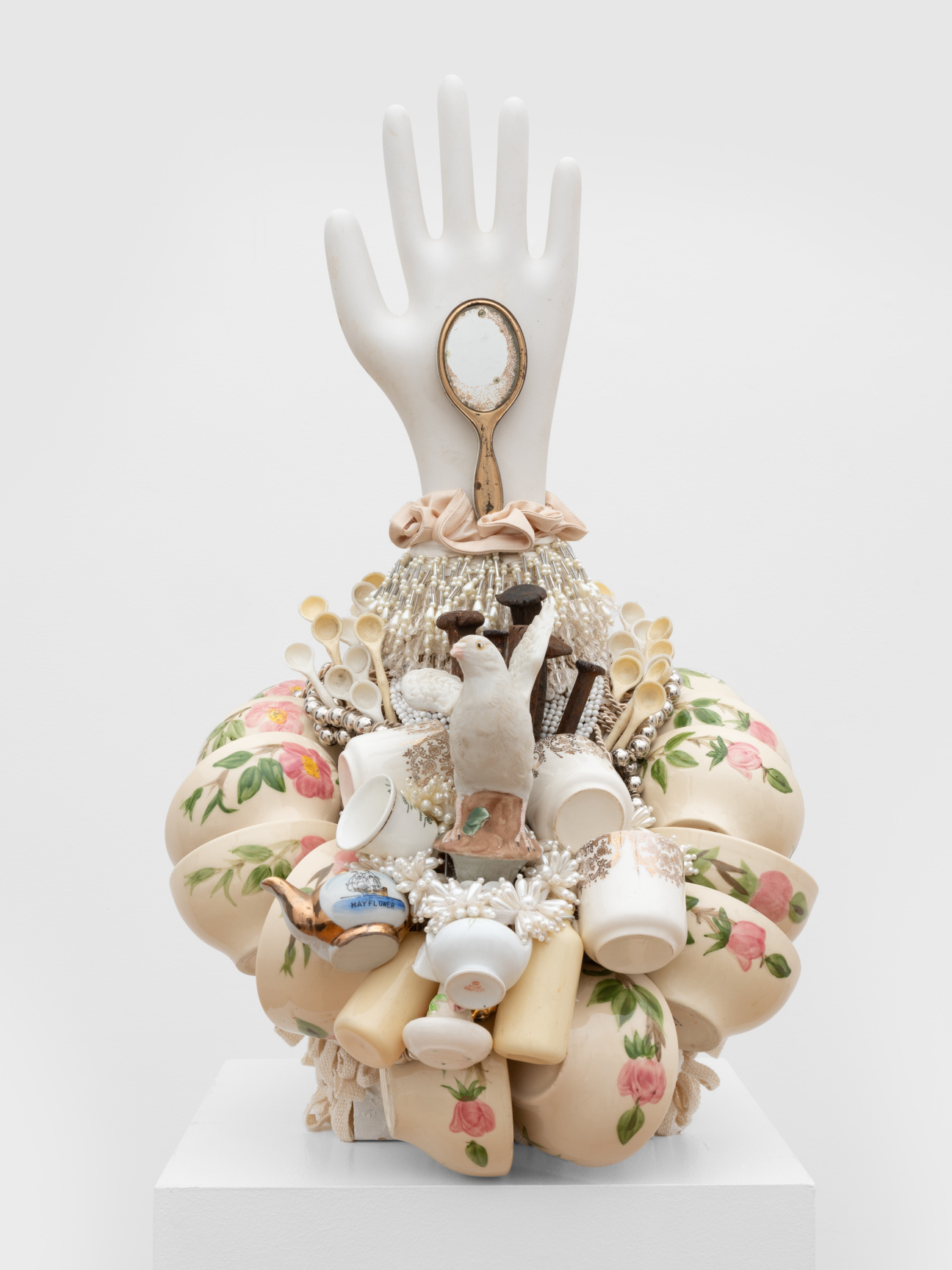
Self: Thank you, Vanessa. That means a lot to me. I believe if you’re making good art it has two functions: a general meaning for most and a deeper, more esoteric meaning for a few. When you’re making art, yes, you have to contextualize it within a time and place—a politic, a culture—but if it’s great work it has to have a meaning beyond all those things. An aspect of the work needs to speak to something beyond race, beyond gender, beyond nation, beyond time even. When I look at your work I feel that part. I feel a reverence in your work, a call to the spirit.
german: Thank you. I just had this show open at the University of Chicago, where I co-taught a para-academic course about creativity, spirituality, and social healing, with the Gray Center for Arts and Inquiry. So I’m in the South Side of Chicago, where Sun Ra used to preach on the corner, and I realized that Sun Ra was visiting me in my studio. I had listened to people talk about Sun Ra at the University of Chicago. They kept saying, “Well, Sun Ra said he was from outer space. Sun Ra said he was from Saturn.” There was this idea that something was wrong with Sun Ra, that he was so disillusioned with being Black in America that he had to create this other path, this recognizing that, “I’m not from here.” But I was like, “What if he was just telling you what was true for him?”
Self: I feel like it can be both, right? Can’t we be both disillusioned, but also not delusional? Who wouldn’t be disillusioned by the Black experience in America?
german: Do you have a piece of paper in front of you? Because you should write that down.
Self: I will!
german: What is your relationship to the word “provocateur”?
Self: It’s not a term I would use to describe myself.
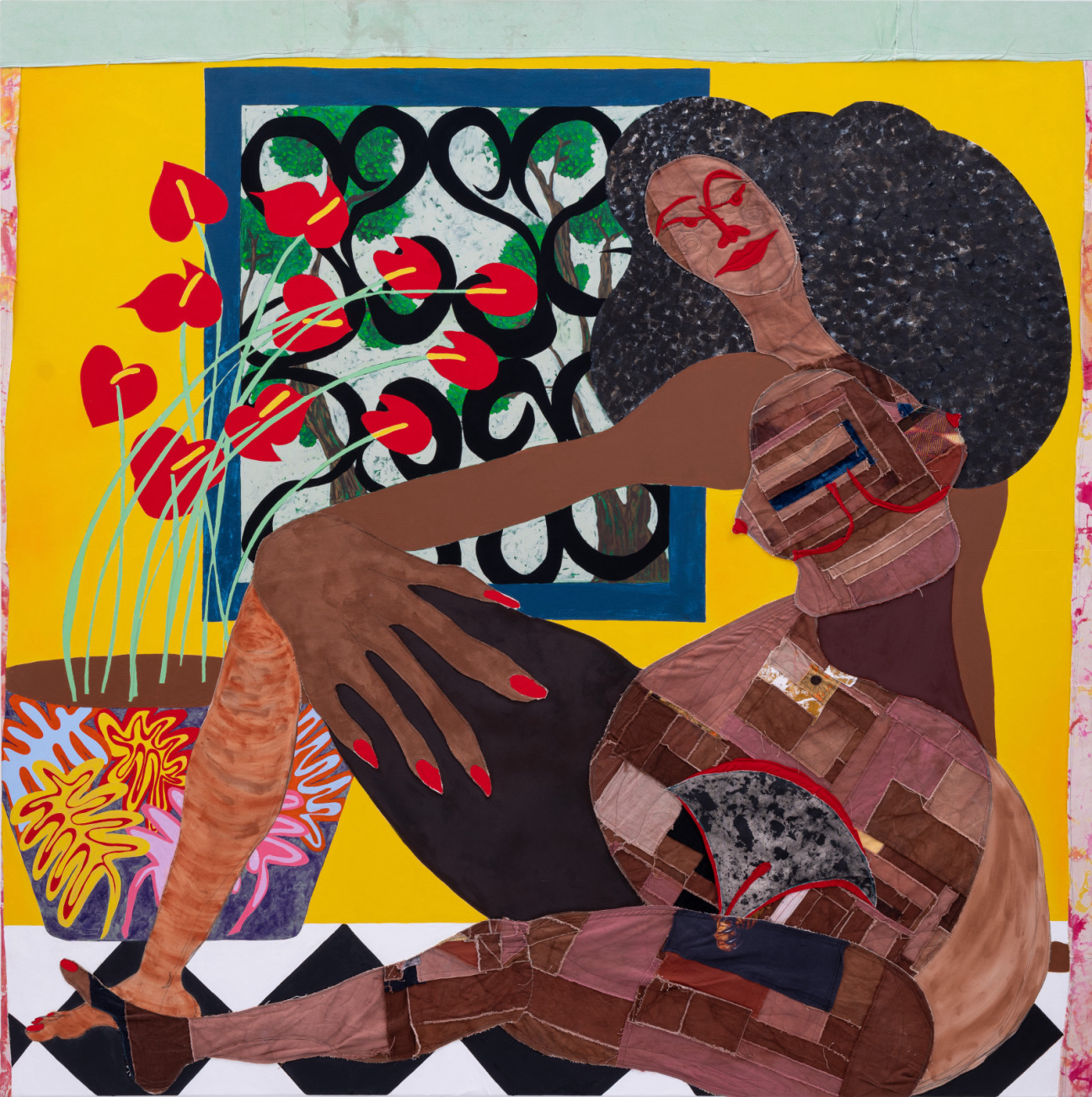
german: Who would use that? Who do you imagine would use that word to talk about you?
Self: People who see themselves as being othered from me, people who have different agendas. A provocateur is someone who is advocating for a point of view or mission that is against the status-quo. My identity and my political viewpoint is normal for me. That’s my baseline. Me amplifying a Black beauty aesthetic is not provocative. It’s just me aligning myself more deeply with my personal agenda, an agenda that edifies me, that edifies people like me.
german: When I was working in Pittsburgh, the police horrifically killed a man in the alleyway next to my studio and I included that in my material list for the sculpture. People reflect back to me that my material lists are provocative because I will make the material list a place of wholeness, where the things that are not available by sight will be given language. My material lists will say “rage,” “grief,” “salt,” “two raised fists,” or “my wish to have a flamethrower,” or “a lot of love and tears and sometimes masturbation.” What does making provocative, fresh, exciting, challenging work look like to you?
Self: Maybe we’re getting out of this moment collectively, but I think there was a stronghold over the contemporary art community for a while, things got quite didactic. There wasn’t any opportunity for two ideas to exist at the same time. Duality has come up a lot in our conversation, and I like the way in which it has been framed: emotionality in combination with intellectualism, can they exist at the same time? Can you speak about a worldly experience while also talking about an otherworldly encounter? Can you speak to your identity while not mentioning your identity at all?
german: That’s a powerful prompt. I feel like part of what is truly provocative is to chart new territory. That’s why I’m interested in what’s happening to artists in the studio. I found it really provocative to hear William Kentridge talk about his work with horses and say, “This is not a concept. This is a thing that I had to make because if I did not make it, would my heart keep beating? Would I still be able to be here?” I’m fascinated by the thing that has to happen. Carrie Mae Weems talked about the “Kitchen Table Series,” she was like, “I didn’t make this for all these reasons. I did it because I knew if I didn’t, I would not be worth my salt.” I’m fascinated by hearing artists talk about that place. Who do you make work for? How has your audience evolved?
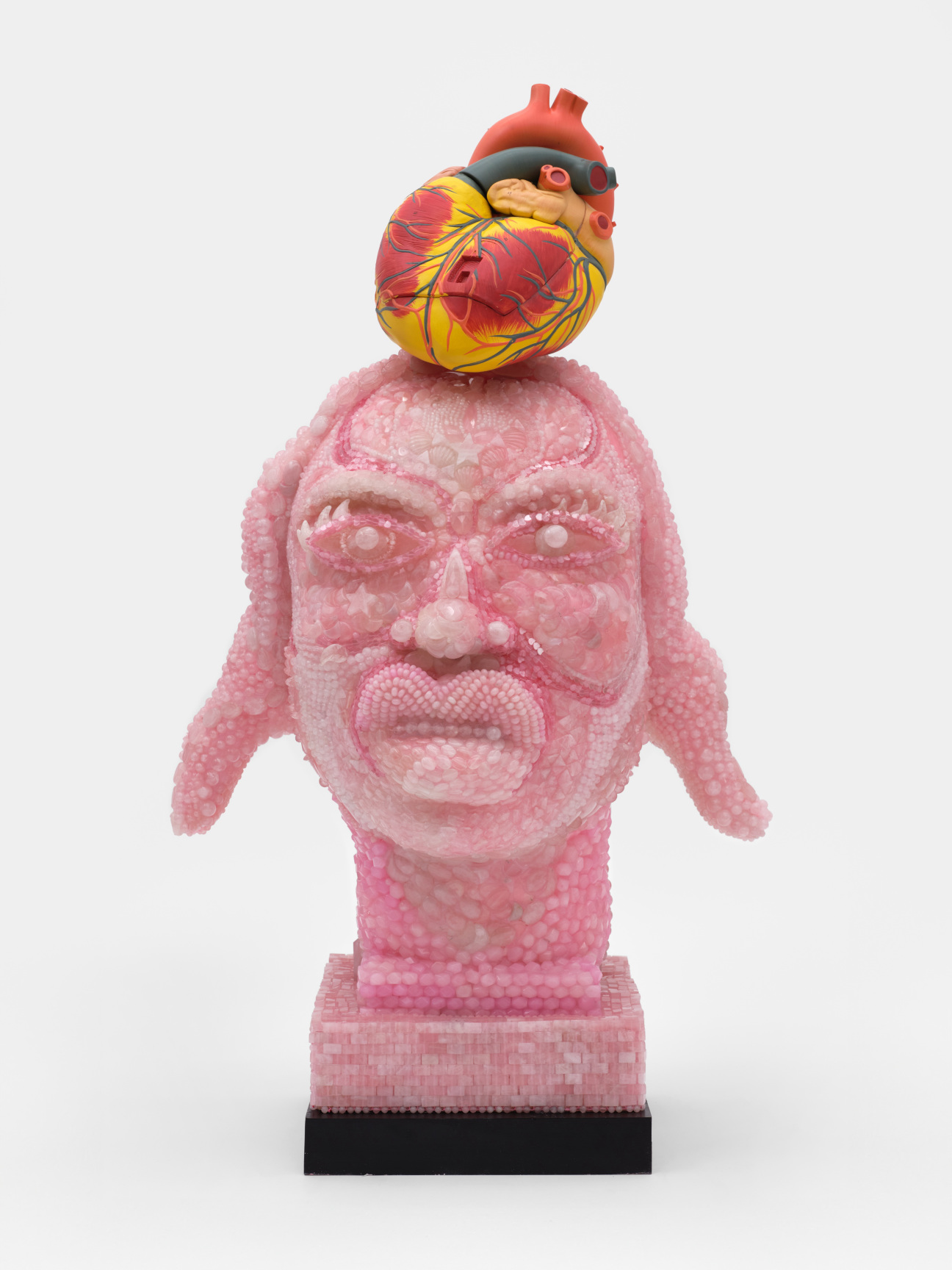
Self: I want my work to be experienced by all people in the world, but I think my work has a special meaning and message for Black women. That’s how I honestly feel about my work. All individuals can glean important things from my work, but my work is a love letter to Black women.
german: How has your relationship to your practice evolved?
Self: It’s been similar to a lot of the things you verbalized earlier, about wanting to find a new language to talk about myself and my work. When I’m speaking about my work, I’m trying to understand who I am talking to. Am I talking to myself or a person that views me as “other”? I’m trying to be more conscious of that. It’s a daily practice of making sure I’m aligned with my ultimate goals.
german: What does the daily practice of developing your new language look like? What is your practice of honoring the language that’s coming and working through it? I’m thinking about Michaela Coel’s I May Destroy You, when they show all the writings that that character has on the wall.
Self: I do write, but not normally. I’ll write if I have a prompt. What helps me stay in line with my goals? Simple things, talking to other people that I care about and respect, that makes a big difference. I mean, having these kinds of conversations. It’s important for me to talk to other artists because other artists live like you. If you’re lucky enough to meet an artist who has similar goals politically and spiritually, that’s a real blessing, you can have an earnest conversation. That’s really healing as well.
german: Yeah. I’ve had some that have stayed with me and I keep unfurling their gifts. I’m a little bit too isolated right now though, but hearing you talk about all those conversations with partners and other artists makes me want to have more of them, thank you so much for saying that. Thank you for being one of those conversations for me.

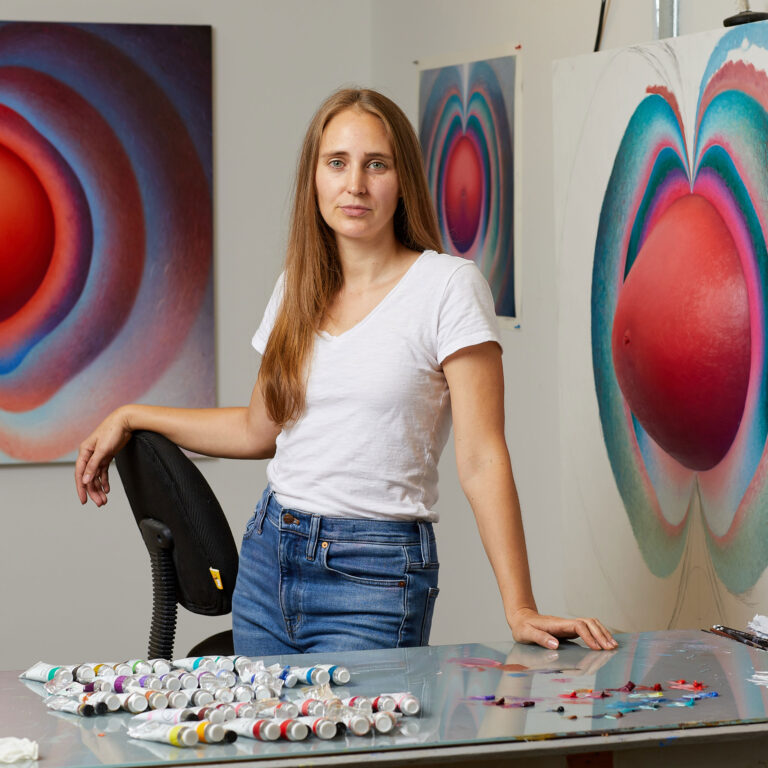


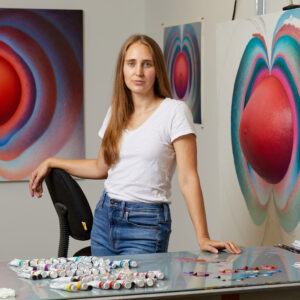





 in your life?
in your life?

